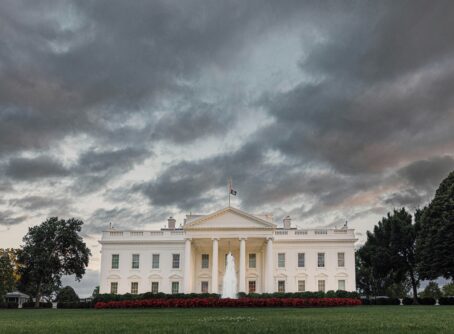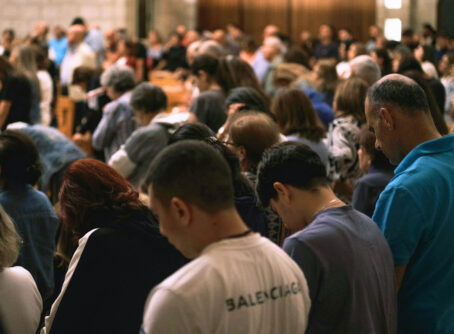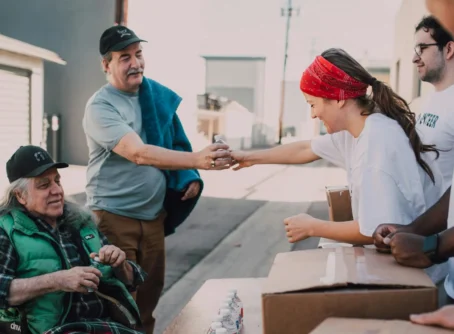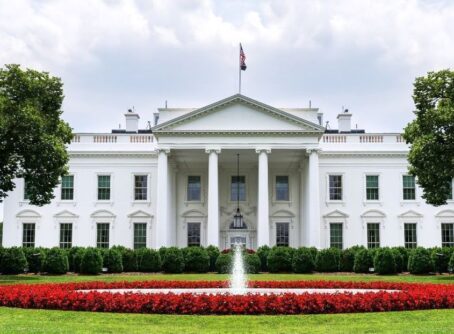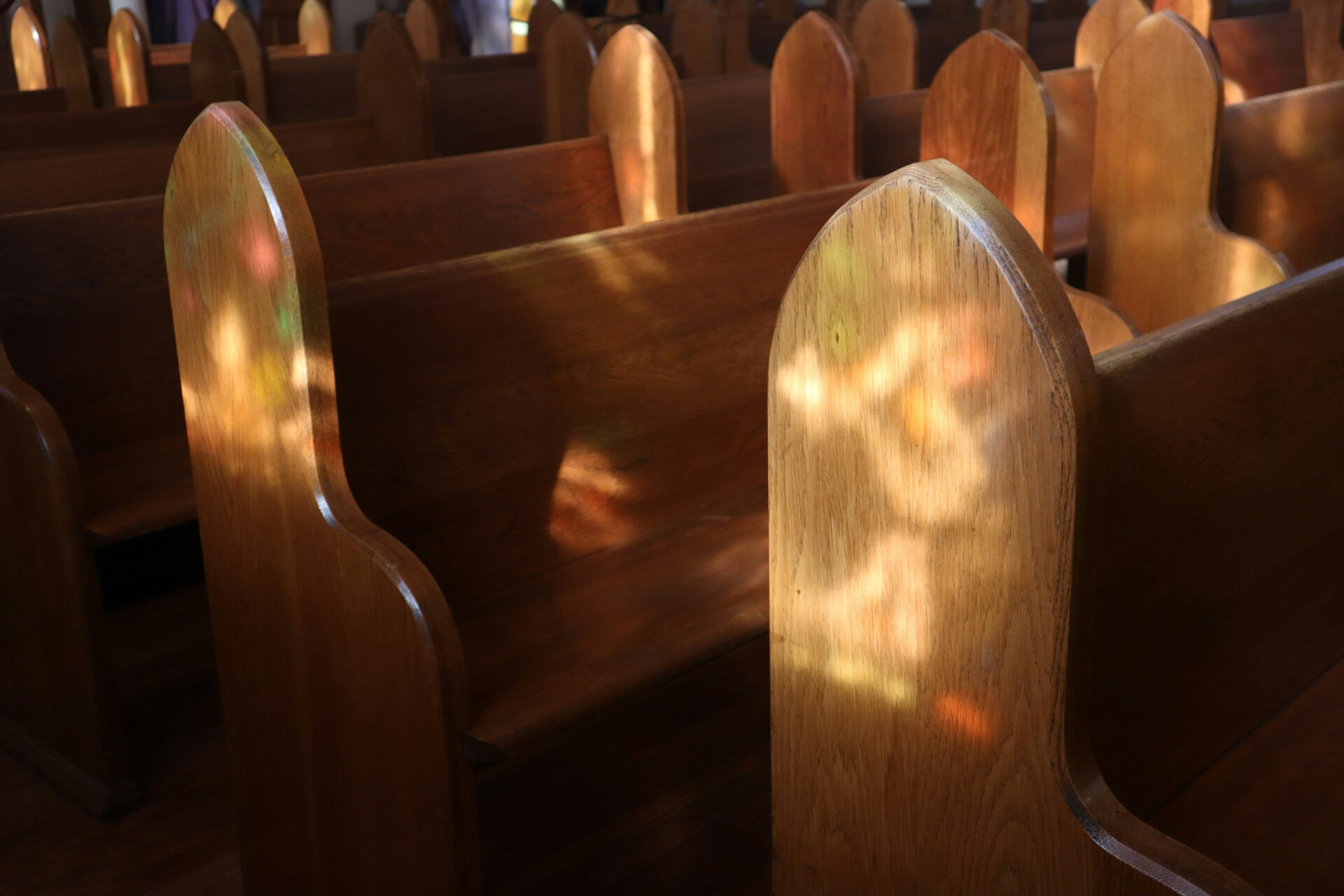
On June 16, 2025, Lieutenant Governor of Texas Dan Patrick called to order the First Hearing of the Religious Liberty Commission (“Commission”), hosted at the Museum of the Bible in Washington, D.C., with a total of ten of the thirteen committee members present. Patrick reminded those present, “Our charter clearly says we have two roles, that is to advise and report to the President. The Presidential Commission does not report to Congress, but the findings from our committees will be reported to the President to see what action would happen after that.”
Key Takeaways from the Religious Liberty Commission
- Affirmation of Religion’s Public Value
- The Commission and its witnesses strongly affirmed the public value of religion and religious expression, emphasizing its contribution to the common good. There was consistent pushback against the narrowing of religious freedom to “freedom of worship,” with commissioners and witnesses stressing that religious freedom entails being able to act according to a religion in daily private and public life.
- Religious Pluralism and Promoting the Common Good
- While some commissioners signaled Christian nationalist sympathies through their comments or historical references, the majority—along with all witnesses—expressed genuine appreciation for America’s religious pluralism, the idea and notion that our government can and should give equal treatment (protection, opportunities, and freedoms) to individuals and organizations of diverse religious backgrounds. Additionally, there was broad agreement that the U.S. can and should promote religion in general, so long as it does not establish or favor a particular sect, and that doing so can advance the common good.
- Balanced Focus on Individual and Institutional Religious Liberty
- The morning session primarily focused on individual religious liberty, with limited attention to institutional rights. By contrast, the afternoon session elevated institutional religious freedom, spotlighting the unique contributions of faith-based organizations (FBOs)—past, present, and future—in public service and government partnerships.
- Solicitation of Concrete Recommendations
- The Commission is actively soliciting policy recommendations from witnesses, though it remains unclear which proposals will ultimately be forwarded to the President. Nonetheless, the structure of the hearings has created ample space for detailed and strategic input from religious liberty advocates.
- Government Partnerships and Institutional Protections
- There was substantive discussion around the need to protect religious institutions that partner with the government by removing regulatory requirements that pressure FBOs to diminish or set-aside religious content in administering their social services. While the religious freedoms of beneficiaries was mentioned, it was not emphasized as strongly as those of religious providers.
Overview of Hearing and Recommendations
The committee and witnesses approached religious liberty on all fronts, from discussing Thomas Jefferson’s “wall of separation” between church and state to recalling Justice Scalia’s comparison of the infamous Lemon Test to a “ghoul in a late night horror movie.”
The Commission commenced with each of the Commissioners emphasizing the value of religious liberty to America as both a right and a foundational principle and discussing it in context of their respective priorities, whether it be in relation to individualism, character and spiritual formation, parental rights, or public value, to name a few. Despite their differing priorities, many commissioners expressed their dismay at common attempts by public figures and secular culture to frame religious freedoms using maxims such as “freedom to worship,” which many believe relegates religion to the private sphere rather than uplifting it as a valid and invited form of action in public life.
All of the commissioners, save Rabbi Meir Soloveichik, hail from Christian traditions. Neither do the three advisory boards to the Commission, made up of twenty-two members, lack Christian representation. However, they do include four Jewish rabbis, two Jewish lawyers, and three Islamic lay leaders. Christian interests revealed themselves time and again through many of the Commissioners’ comments and questions. Nonetheless, the reality of America’s religious pluralism surfaced frequently, even if the Commission favored a Judeo-Christian worldview. Patrick commented, “This commission, in part with the President’s guiding, is so that we all in America can reclaim that inheritance our founders gave us. The Declaration of Independence is consistent with the Bible, and the Bible is consistent with the Declaration of Independence … Where can I pray? When can I pray? Who can I pray to? Because this commission is about all faiths.”
After the Commissioners’ opening remarks, seven expert witnesses were invited to give remarks and receive questions from the Commissioners. Throughout the hearing, the witnesses were explicitly asked what recommendations they would like to see the Commission take to the President.
Mark Rienzi, CEO and President at the Becket Fund of Religious Liberty, referenced three examples of places where American society has fallen short:
- “After the October 7th terrorist attacks in Israel, many American college campuses succumbed to horrific antisemitism. Jewish students were harassed, swastikas became common at UCLA. There was a Jew exclusion zone in the heart of the campus. Shockingly, UCLA used its police force to turn Jewish students away rather than helping them through.”
- “The courts recently turned their backs on the Western Apache people, refusing to protect a sacred site where they have practiced their faith for generations. Now that holy ground is in danger of being destroyed, so that a foreign owned company can extract copper from it.”
- “You are likely familiar with the plight of the Little Sisters of the Poor Catholic sisters who provide loving homes for the elderly. State and federal governments have been trying for more than a decade to force the sisters to help distribute contraceptives and abortion inducing drugs. Even after three wins at the Supreme Court, the Little Sisters are still fighting hostile state governments in court today; the greatest and freest nation on the face of the Earth can do better than fostering antisemitism, destroying sacred sites, or pretending we need to force nuns to give out birth control.”
An important exchange regarding the role of courts versus that of legislators in upholding the religious freedom of minority groups also emerged. Patrick, placing the blame of setbacks to religious liberty in America almost entirely on the courts, asked Rienzi, “The founders believed [religious liberty] should be left to the states and the state legislatures. Do you believe if the courts had stayed out of this, which they had for a long time, and left to the will of those elected by the people, that the legislators in this country would have made these same decisions and passed these same laws ? . . . because I question if the Congress or state legislatures would have done what the courts have done.” Rienzi replied,
I’d caution that I think it’s a dangerous world to say we want the courts out of these things. I think the point of the Bill of rights is that there are some principles that everybody is supposed to apply, but the courts ultimately do need to protect and step in occasionally. The law in Gobitis was from a local school board and legislature, too. So I think sometimes those entities will get it right; sometimes they will get it wrong. But I do think we need a system that protects minority rights and sort of ensures that they get it right.
Gerard Bradley, Professor of Law Emeritus at the University of Notre Dame Law School, offered recommendations that were not as explicit but included uplifting the public benefit of religion; the history of government partnerships with religious institutions, bearing in mind the religious freedoms of people benefiting from those social services; and America’s religiously pluralistic landscape. He said,
[The Court] has yet to say and should say . . . that promoting religion for the sake of religion and its ulterior benefits to the polity is fine.” Also, “there was a tradition from the founding, until the day before yesterday, of creative partnership between government and religion, religious groups, religious bodies, to supply social services, education, etc. Now that should be done, and all of this should be done, with respect for people’s freedom. So none of this suggests in the slightest, or I don’t think it should suggest in the slightest, that Jehovah’s Witnesses schoolchildren should actually be compelled to salute the flag . . . No, but all of this should be respectful of people’s freedom, and also of a kind of nondiscrimination among the religious groups.
Bradley and Dr. Phil McGraw had a healthy exchange over whether the government should promote religion. Religion, Bradley argued, is a common good, just like education, and also something you are free to reject despite the government’s suggestions, just like marriage. McGraw, however, called it “a scary concept,” questioning whether it is the same to promote religion as it is to promote freedom to choose to be religious.
Mark David Hall, Professor at Regent University’s Robertson School of Government, contributed to the Commission mainly by providing historical context through which the Commission should understand the Founders’ vision for religious freedom in the U.S. Constitution. His commentary ranged from early church history to the founding fathers. “It’s really the early church,” Hall said, “that comes up with this idea of religious liberty … Tertullian, the early Church Father, is the first person to ever use the phrase religious liberty.” He added, “[Thomas Jefferson] wanted a greater degree of separation between church and state than almost any other founder, but in his own actions, he did not act as if there was a wall of separation between church and state. And if we turn from Jefferson to the rest of the founders, we find no historical evidence that the founders wanted any sort of separation between church and state.”
When asked by the Commission for a specific policy recommendation, Hall noted that parents having the right to send their kids to religious schools and be not forced into public options was good but limited, seeing that it only served middle to upper class families. He recommended expanding school choice so that religious freedoms in education could permeate all levels of society and benefit families across a plurality of religious traditions. He said,
A lot of parents can barely afford to pay rent and buy food. They cannot afford to … pay their taxes and send their kids also to schools that reflect their worldview. Islamic schools, Jewish schools, Montessori schools, whatever that worldview might be. So I think robust school choice is a way to address one of the key problems with respect to religious liberty. And that would also get us out of some of these problems we’re seeing … where the county is insisting on teaching pornography to three, four, five year olds. And parents are saying, no, let us at least opt out.
In her testimony, Barbara J. Elliott, Fellow at the Dominican School of Philosophy and Theology, reinforced the public value of FBOs as agents of social transformation, not merely resulting from the social services they provide (aided by government funding or not) but from the sacred and divine missions that inspire their service and elevate the dignity of each person. For Elliot, the U.S. government has treated its most effective social service providers, religious organizations, unfairly and has placed unlawful anti-religious barriers in the way of them becoming meaningful government partners. She shared, “Human persons are not designed to be merely clients of social services. We’ve been given life by our creator for so much more; we were made by love, for love.” When asked specifically about what government can do to level the playing field to welcome the effective participation of FBOs in government-funded programs, and what recommendation should be taken to the President, she responded:
I think the most helpful thing would be to stop silencing the faith factor in organizations that are doing good work. The requirement in order to receive government money has often been to take the faith factor out … Let faith-based groups be true to their mission, true to their calling, and not be hindered by the government in any way. Don’t make the mistake of thinking that giving funding is the most valuable thing the government can do. Getting out of the way is sometimes the most valuable thing they can do. But let [faith-based groups] be true to who they are.
Stephanie Barclay, Professor of Law at Georgetown Law School, contributed to the hearing testimony on the original meaning of the First Amendment’s Free Exercise and Establishment Clauses, which included laying the backdrop of the Puritans’ animus and punishment of religious nonconformity. She argued that the clauses, working in tandem, served to “prevent government from interfering with individual and institutional religious life as much as possible,” and the Free Exercise Clause, specifically, was meant to be a “guarantor of genuine religious pluralism.” Additionally, she referenced scholarship that outlined six state actions that the nation’s founders would have clearly recognized as an establishment of religion. At the end of her testimony, she briefly referenced three areas where the Commission should direct their religious liberty concerns: antisemitism, Native American sacred sites, and obstacles that hinder religious charities providing social services.
During questioning she recommended, as did Rienzi, that the current administration take action to preserve a Western Apache Native American’s sacred site in Arizona called Oak Flat, using one of many discretionary federal actions.
Joshua Blackman, Centennial Chair of Constitutional Law at South Texas College of Law in Houston, used ten significant court cases, from Everson v. Board of Education (1947) to Carson v. Makin (2022), to characterize the shift in judicial understanding of the U.S. Constitution’s Free Exercise and Establishment Clauses, arguing that while current U.S. courts are closer to a more proper interpretation of religious freedom than the Supreme Court in 1947, there is still a profound need for the government to give clarity on religious liberty.
Both Barclay and Blackman recommended the Department of Justice be willing to file amicus briefs and look for good vehicles to overrule cases such as the Smith decision (1990) and to broaden Establishment Clause jurisprudence.
Through her testimony, Kristen Waggoner, CEO, President, and General Counsel of the Alliance Defending Freedom, stressed to the RLC the human cost of weak religious liberty protections, the importance of protecting even unpopular religious beliefs, and her belief that “the United States … is the last Western country in the world to provide robust religious freedom and free speech protections.” She recommended that the President use his administration’s platform to help Americans understand the threat to religious freedom, the goodness of religion and practicing one’s faith, and what American religious rights are. She then provided a set of specific, actionable recommendations to the administration along five lines:
- Federal Conscience Laws: “Restore the Conscience and Religious Freedom Division at HHS and establish similar divisions within other departments; civil rights offices … ensure equal access to federal funding is consistent with recent Supreme Court precedent; enforce all federal conscience laws, holding accountable recipients that violate those laws; support the Conscience Protection Act; and support the Families Rights and Responsibilities Act.”
- Financial Penalties: “End the financial targeting of people of faith; ensure the IRS doesn’t discriminate against houses of worship or religious organizations, and protect these entities from unjust penalties under the Johnson Amendment; guarantee that prior weaponization of financial regulations and markets against people of faith never, ever happens again; support the Safeguarding Charity Act, which protects the independence and tax exempt status of charitable organizations.”
- Regulatory Targeting: “Protect people of faith from the regulatory state; develop rules that prevent future administrations from labeling as domestic terrorists Americans who simply purchased a religious text or spoke at a school board meeting; require religious training for FBI agents.”
- International Religious Freedoms: “Promote religious freedom on the international stage in collaboration with the Ambassador at Large for International Religious Freedom; implement President Trump’s 2020 Executive Order on Advancing International Religious Freedom to ensure that religious freedom remains a central priority of U.S. Foreign policy.”
- Judicial Appointments: “President Trump must continue to do more than appoint originalists to the bench, but to appoint judges with an established record of courage, character and conviction who will apply the law without fear of public opinion; our rights under the Constitution become meaningless without an independent and a virtuous judiciary.”
Looking Ahead
- Remain Hopeful About Pluralistic Outcomes
- We should maintain a positive and hopeful posture that the RLC’s eventual recommendations will reflect a commitment to America’s religious pluralism rather than the elevation of a single religious tradition. The tone and content of the first hearing suggest a genuine appreciation for the diverse religious landscape of the United States.
- Affirm the Ongoing Recognition of Religion’s Public Value
- We can be confident that the public benefit of religion and faith-based organizations (FBOs) to the common good will remain a central theme in the Commission’s work. The hearing made clear that institutional religious freedom—not just individual liberty—is receiving serious attention and will likely shape forthcoming recommendations.
- Advocate for Beneficiary-Focused Religious Liberty Concerns
- We (CPJ) will continue to seek ways to influence Commissioners and their advisers to explicitly raise and consider religious liberty concerns affecting beneficiaries—both religious and non-religious—who receive services through government-funded programs. This lens is often underrepresented but is essential to a comprehensive vision of public justice and principled pluralism.
- Broaden the Public Understanding of Religious Freedom’s Benefits
- If the work of the Commission will eventually lead to broader and clearer religious freedom protections in the U.S., we should be asking ourselves, “How can we faithfully and humbly communicate to non-religious audiences that robust religious liberty protections serve the common good—not just religious communities?”
The next hearing of the Religious Liberty Commission is currently scheduled for September 8, 2025. The first hearing is available in three parts.
Part 1: Mark Rienzi, Gerard Bradley, and Mark David Hall.
Part 2: Pam Bondi and Barbara J. Elliott
Part 3: Sephanie Barclay, Joshua Blackman, and Kristen Waggoner.
Girien R. Salazar, Ph.D., is the Director of Faith-Based Policy and Research at the Center for Public Justice.
Photo by Channel 82 on Unsplash.

